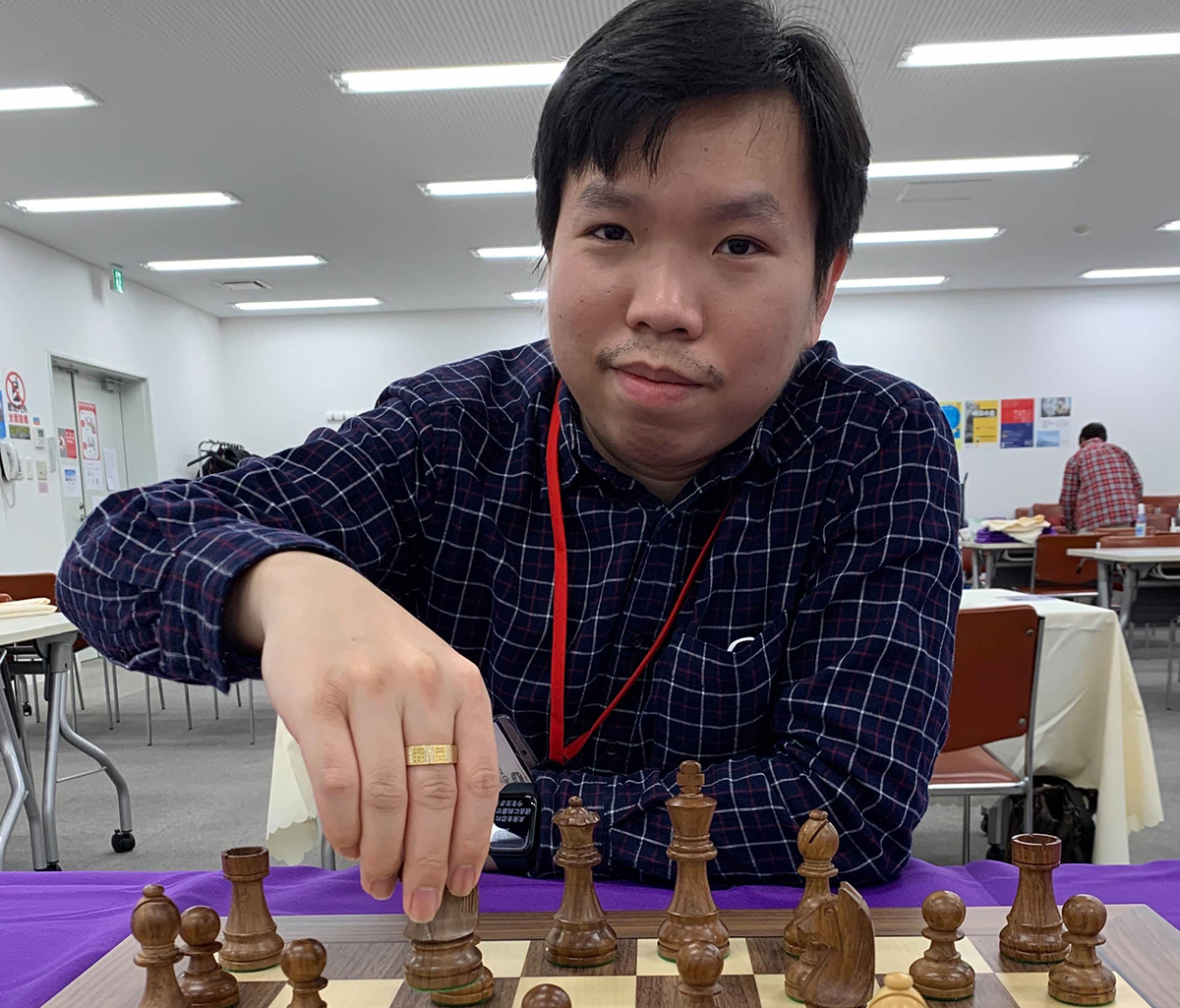When the World Chess Federation (FIDE) unveiled the Japanese lineup for the FIDE Online Olympiad 2020, many were surprised to see a Vietnamese national leading the squad.
The Vietnamese name 'Tran Thanh Tu' topping the list as captain for Japan’s national chess team took thousands of local chess fans by surprise.
Though many find it hard to believe, the Japanese chess squad is, in fact, being led by Vietnamese national Tran Thanh Tu.
Tu will serve as captain for the team during the ongoing FIDE Online Olympiad 2020, held virtually between July 22 and August 30.
The online tournament was introduced as a new major competition by FIDE this year as the biennial Chess Olympiad had been postponed until 2021 due to the novel coronavirus disease (COVID-19) pandemic.
Though Tu’s name might not mean much to younger chess fans, longtime chess enthusiasts might remember Tu as a member of one of Vietnam’s most promising generations of chess prodigies, alongside other local chess greats such as Le Quang Liem and Nguyen Ngoc Truong Son.
But despite his current status as a national chess captain, Tu still remembers his humble beginnings in the Vietnamese countryside.
"I was born to a rural family in Chau Thanh District in the Mekong Delta province of Dong Thap. I was able to become who I am today thanks to chess and my determination," Tu told Tuoi Tre (Youth) newspaper.
A paper chessboard
Tu was born and raised in the southern province of Dong Thap, home to many of Vietnam’s most well-known chess players including the country’s first grandmaster Dao Thien Hai.
But he never set out to be a chess great. It just kind of happened, Tu said.
"My family lived in a rural region and we were too poor for toys. My brothers knew how to play chess but they didn't have a chessboard so we managed to make one from paper and show each other how to play with it. That was the starting point of my chess journey. I was just four or five years old," Tu recalled.
After just a few months, Tu was able to beat his brothers. At first, winning was just enough for Tu. Later, he realized his passion for the game and asked his parents to enroll him in chess lessons.
At the age of six, Tu was sent to Sa Dec, a city in Dong Thap Province, to live, study, and learn to play chess.
At the age of ten, he moved to Cao Lanh, the provincial capital, where he joined the provincial chess team for gifted players.
"Thanks to my chess training and participating in chess competitions I was able to earn enough money to afford my room and board and didn’t need to burden my parents by asking for money. Apart from playing chess, I tried my best to achieve good scores in school," Tu said.
As a student, Tu never dreamed of traveling abroad to play chess. He was content challenging his coach and reading chess books downloaded from the internet in order to improve his skills.
As a teen, he won several cups in the national youth championships. Two of his most memorable championships were the U16 Southeast Asia Chess Championships in 2006 and the National Rapid Chess Championship in 2015.
Becoming Japan’s chess captain
Tu graduated from Can Tho University in 2013 and began work as a developer using his IT degree.
Two years later, he found himself at a crossroads between two options: pursuing a career in chess and staying in Vietnam or moving to Japan to participate in a 10,000-engineer collaboration program between Vietnam and Japan.
Figuring that going abroad could be a good opportunity for his future, Tu decided to go to Japan in July 2015 to work for a Japanese company.
Naturally, the moment he got to Japan he looked into joining a chess club. Between work and time spent studying Japanese, he managed to find space in his schedule to join the Chiba chess club.
He has since become a phenomenon in Japanese chess circles and won the Japan Chess National Championships in 2016 and 2018.
"Despite my Elo ranking not being the highest, I am considered to be the chess player with the best real capacity in Japan," Tu said, referring to the Elo rating system — a method used by FIDE for calculating the relative skill levels of players in playing chess.
"One day I got an unexpected call from the chairman of the Japan Chess Federation, Hiebert Yumiko. He offered me the position of captain on the Japanese team for this year’s online Olympiad," he added.
"This is a great honor for me," Tu said.
Tu acknowledges if he was living in Vietnam, despite having been a member of the chess national team, he would not have a chance to compete for such a prestigious tournament because Vietnam has a lot of excellent chess talents.
"I'm going to try my best to do something. At the least I’ll be able to promote the development of chess in Japan in the future," Tu shared.
The FIDEOnline Olympiad 2020 kicked off on July 22 and will last until August 30, with 163 national teams competing.
Japan's team will compete in the tournament's third tier with only seven chess players because they could not find enough qualified players to register for all the 12 slots according to the FIDE's guidelines.
"Japan’s chess actually isn’t very developed. Many chess tournaments have to be held during holiday periods to be able to have enough contestants, as there are not many players who can compete when they’re held on working days," Tu explained.
"This year's Japanese chess team consists entirely of amateur players, many of whom are engineers, university lecturers, and graduates," he added.
Like us on Facebook or follow us on Twitter to get the latest news about Vietnam!


















































